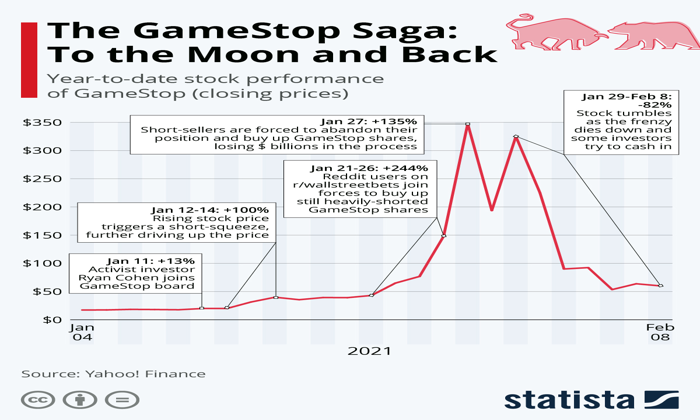Evening workouts have gained popularity for those seeking to maximize their energy levels and unwind after a long day. However, recent studies reveal that engaging in high-intensity workouts close to bedtime might lead to significant sleep disruption, resulting in shorter sleep durations and lower sleep quality. This contradiction challenges common beliefs about the benefits of evening exercise, especially for night owls who thrive on late-night routines. The timing of your exercise plays a pivotal role in determining not only workout recovery but overall wellbeing, as inadequate rest can hinder physical progression and cognitive function. To cultivate a healthy balance between evening workouts and restful nights, experts suggest completing strenuous exercise at least four hours before sleep onset for optimal recovery and sleep quality.
When it comes to post-work routines, exercising in the evening can seem like a great way to relieve stress and stay fit. However, recent findings indicate that late-night training sessions, especially those involving intense physical activity, may negatively impact sleep patterns and overall recovery. This emphasizes the importance of understanding exercise timing and its effects on sleep quality. Balancing evening fitness regimens with adequate rest becomes crucial, particularly for individuals who partake in vigorous activities. Adopting lighter exercises or scheduling workouts earlier in the day may enhance nightly rest and restore energy levels effectively.
The Impact of Evening Workouts on Sleep Quality
Recent studies have highlighted the potential negative effects of evening workouts on sleep quality, specifically high-intensity exercise performed shortly before bedtime. Individuals who engage in strenuous late-night workouts may experience significant sleep disruptions, leading to shorter rest periods and inadequate recovery. The physiological factors at play include heightened sympathetic arousal, which keeps the body in an alert state, making it difficult to unwind and fall asleep. This research underscores the importance of understanding exercise timing to safeguard sleep health.
In analyzing data from over 14,000 physically active adults, researchers found that engaging in workouts that demand maximal exertion just before sleep can lead to increased sleep latency—meaning individuals take longer to fall asleep—along with a decrease in overall sleep duration. These findings challenge the long-held belief that evening workouts are universally detrimental, suggesting that timing and intensity play crucial roles in how exercise affects sleep quality.
Frequently Asked Questions
Do evening workouts disrupt sleep quality?
Yes, new research indicates that high-intensity evening workouts can significantly disrupt sleep quality. Engaging in strenuous exercise close to bedtime may lead to delayed rest and reduced recovery, making it essential to complete such workouts at least four hours before sleep.
What is the optimal timing for evening workouts to maintain sleep quality?
To optimize sleep quality, it is recommended to finish high-intensity workouts at least four hours before your bedtime. This timing helps mitigate the effects of sympathetic arousal, which can hinder your ability to relax and fall asleep.
How do high-intensity evening workouts affect sleep duration?
High-intensity evening workouts can shorten sleep duration. A study found that individuals who exercised strenuously two hours before sleep fell asleep an average of 36 minutes later and experienced 22 minutes less sleep compared to those who engaged in lighter exercises.
Can I still exercise in the evening without affecting my sleep?
Yes, you can still exercise in the evening without negatively impacting sleep if you choose moderate-intensity workouts. However, it’s advisable to complete these workouts at least 90 minutes before sleep to minimize any potential sleep disruption.
What are the long-term effects of evening workouts on sleep recovery?
Engaging in high-intensity workouts late in the day can slow overnight recovery and impede important restorative processes. Prioritizing proper timing and exercise intensity is crucial for optimizing both workout recovery and sleep quality.
Why should I avoid strenuous exercise close to bedtime?
Avoiding strenuous exercise close to bedtime is recommended because it induces heightened sympathetic arousal, which can hinder relaxation and sleep onset, ultimately affecting your overall sleep quality and health.
What types of evening workouts are recommended for better sleep?
For better sleep quality, consider opting for lighter evening workouts, such as yoga or low-intensity cardio. These types of exercises are less likely to disrupt your sleep compared to more strenuous activities.
| Key Point | Details |
|---|---|
| New Study Findings | Strenuous late workouts can disrupt sleep, delaying rest and reducing recovery. |
| Research Analysis | Study included nearly 15,000 active adults, examining the effects of workouts near bedtime. |
| Exercise Timing Recommendations | Avoid high-intensity workouts within four hours of sleep to maintain sleep quality. |
| Effects on Sleep | Workouts close to bedtime resulted in delayed sleep onset and reduced sleep duration. |
| Public Health Guidelines | Traditional guidelines warned against evening exercise, but recent insights suggest moderation. |
Summary
Evening workouts could be disrupting your sleep, as new research indicates that high-intensity exercise performed close to bedtime can significantly impact sleep quality. To promote better sleep health, it is essential to schedule strenuous workouts at least four hours before sleeping. This adjustment can help individuals enhance their recovery and overall well-being, emphasizing the critical role of sleep in maintaining physical and mental health.
Evening workouts have become a popular choice for many fitness enthusiasts looking to fit in exercise after a busy day. However, recent research suggests that engaging in high-intensity workouts close to bedtime could lead to significant sleep disruption, impacting overall sleep quality and workout recovery. The timing of your exercise plays a crucial role in how it affects your body, especially if those late-night sessions trigger prolonged periods of alertness. In fact, studies indicate that exercising just before bed may not only delay sleep onset but also reduce the restorative benefits of your slumber. To optimize your health, consider reevaluating your evening workout schedule and aim to finish strenuous exercises at least four hours before hitting the pillow for better sleep hygiene.
Late-night physical activity provides an appealing option for many who seek to balance their busy lives with fitness goals. However, the choice to engage in evening fitness routines can interfere with restful sleep, as evidenced by recent findings. This form of exercise timing is essential, especially for those who participate in intense training before bedtime, leading to poorer sleep outcomes and ineffective recovery. Scholars and health professionals are now learning just how crucial it is to assess the impacts of workout intensity when planned for the evening. With growing interest in maintaining sleep quality while sustaining workout regimens, evaluating when to exercise becomes increasingly important for overall health.















